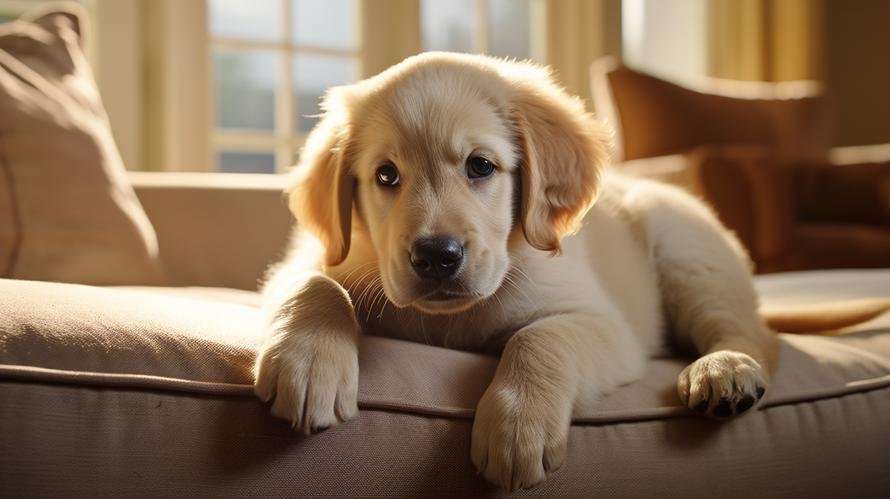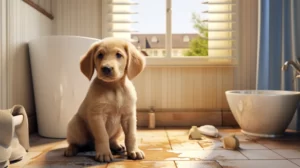Did you know that canine intelligence can be compared to that of a two-year-old human? They’re capable of understanding words and gestures, count up to five and can even perform simple calculations! This level of intelligence is key when it comes to something as intrinsic as house-training a puppy; and you, my friend, hold the pivotal role of a dog parent and teacher. And the first question that you’re probably asking yourself should be, “At what age should I start house training my furry little companion?”
The most suitable age for your puppy to begin house training is when they are between seven weeks to eight weeks old. This period, called the ‘socialization phase’, is when the puppy begins to understand and interact with its environment. It is an excellent time to establish the essential routines and house rules that your pup should follow.
Now, if you are wondering why so early, consider this fact! Puppies, similar to human babies, are learning machines. Their brains are like little sponges, soaking up all the information from their surroundings. This age range of seven to eight weeks old is a window of opportunity when your pup can learn quickly and effectively, making it the best time to start your house training. Besides, it helps you nip any unwanted behavior early, saving you a ton of mess and frustration in the future!
But remember! House training isn’t about having one or two training sessions per day. Instead, it’s an ongoing process that, when combined with consistent positive reinforcement, will help your puppy learn where they should and shouldn’t eliminate.
It is also crucial to realize that just like humans, each dog is unique and will learn at his own pace. There is no need to rush, and it won’t help either if you’ve heard stories about ‘that German Shepherd down the street that got house trained in just a week.’ It’s not a competition! It usually takes between 4-6 months for a puppy to be fully house trained. Some puppies may take up to a year, depending on factors such as their size, breed, and previous experiences, if any.
Hygiene is the basic instinct of every animal, even your canine buddy. Dogs are den animals, and, naturally, they do not like to soil the area where they sleep or eat. Therefore, a lot of your puppy’s house training will revolve around setting up a routine and sticking to it. This will teach them to control their bladder and bowel movements for their designated bathroom times.
To set your puppy up for success, follow these simple tips:
- Set a routine: Feeding, walking, and playtimes should be at the same time every day. This will help your puppy know what to expect, thereby reducing anxiety and stress.
- Use a crate: A crate gives your dog its own space and protects your house from accidents when you can’t watch your pup.
-
Early riser: The first trip to the potty should be as soon as you and your pup wake up. In the beginning, this could be as early as 5 am.
-
Reward good behavior: Praise your pup and offer a treat when it successfully goes potty outside. This positively reinforces the behavior you want to see.
-
Clean accidents thoroughly: Puppies have a keen sense of smell. If there are any traces of odor left, they may return to that spot to eliminate again.
-
Limit food and water before bedtime: A full belly means a full bladder. Limiting intake a couple of hours before bed reduces the chances of nighttime accidents.
Though house training your puppy can sometimes be frustrating, remember to show patience and understanding. You are both learning about each other and the world you share. Cherish every moment, even the messy ones. In the end, the bond you’ll share and the unconditional love you’ll receive from your furry friend will make it all worthwhile!



